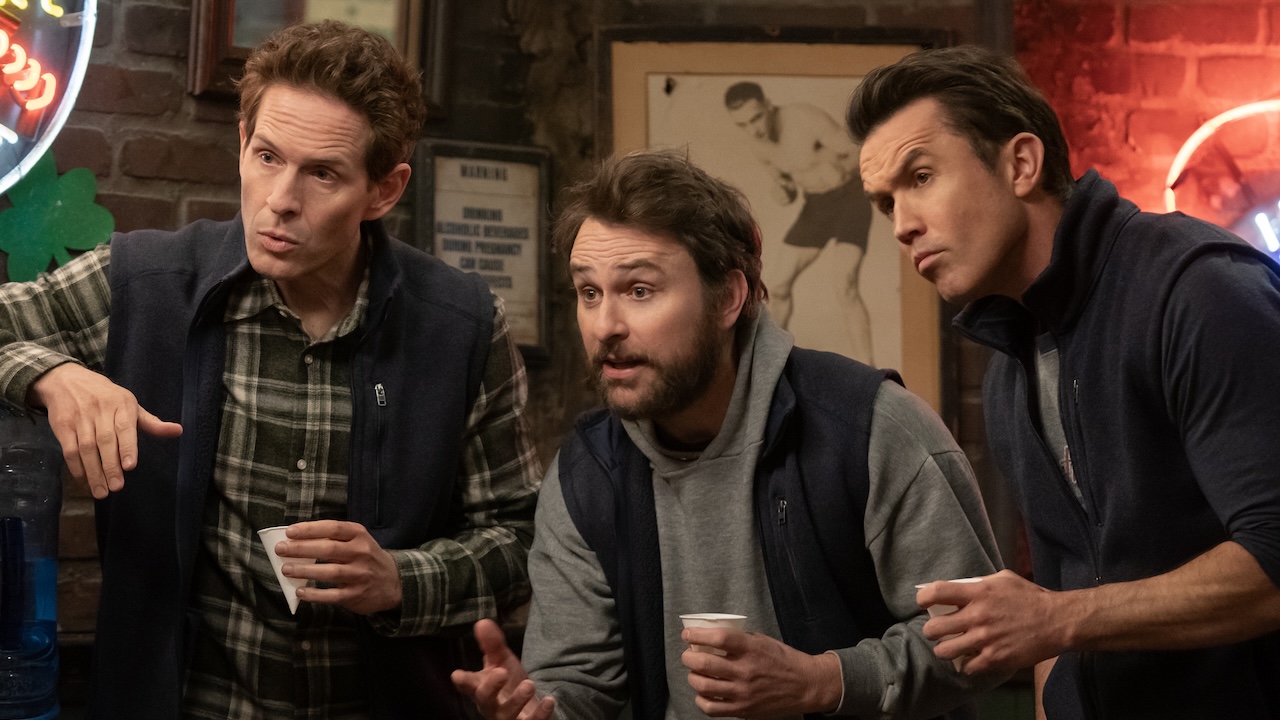The Trial Of The Chicago 7: 5 Things To Know About The Case Before You Watch The Netflix Movie
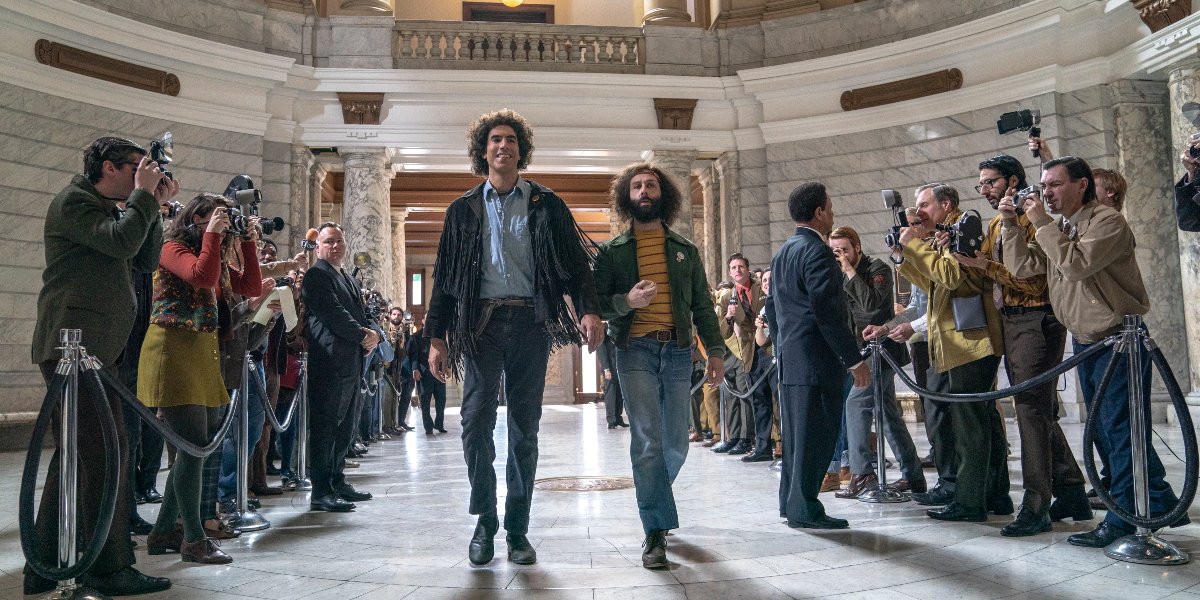
Your Daily Blend of Entertainment News
You are now subscribed
Your newsletter sign-up was successful
The "Summer of Love" in 1967 is often considered one of the most positive and significant stretches of time in American history. What came the following year was anything but peaceful or joyous, with the assassinations of civil rights leader Dr. Martin Luther King Jr. and presidential candidate Robert F. Kennedy and the turmoil of that taking place on millions of Americans' television screens as they watched the riots at the Democratic convention in Chicago in August 1968. This pivotal moment and the lengthy court battle that followed will soon be recreated in the Netflix movie The Trial of the Chicago 7.
The soon-to-be-released project has been in the works for years now with writer Aaron Sorkin leading the charge. There were multiple starts and stops and some notable directors attached before Sorkin decided to do it himself. And before we all jump into what will hopefully be a landmark film that is revisited for years to come, we should probably look at the actual Chicago 7 (formerly Chicago 8) and everything that followed their roles in the protests, their indictments, and the battles that played out in the courtroom.
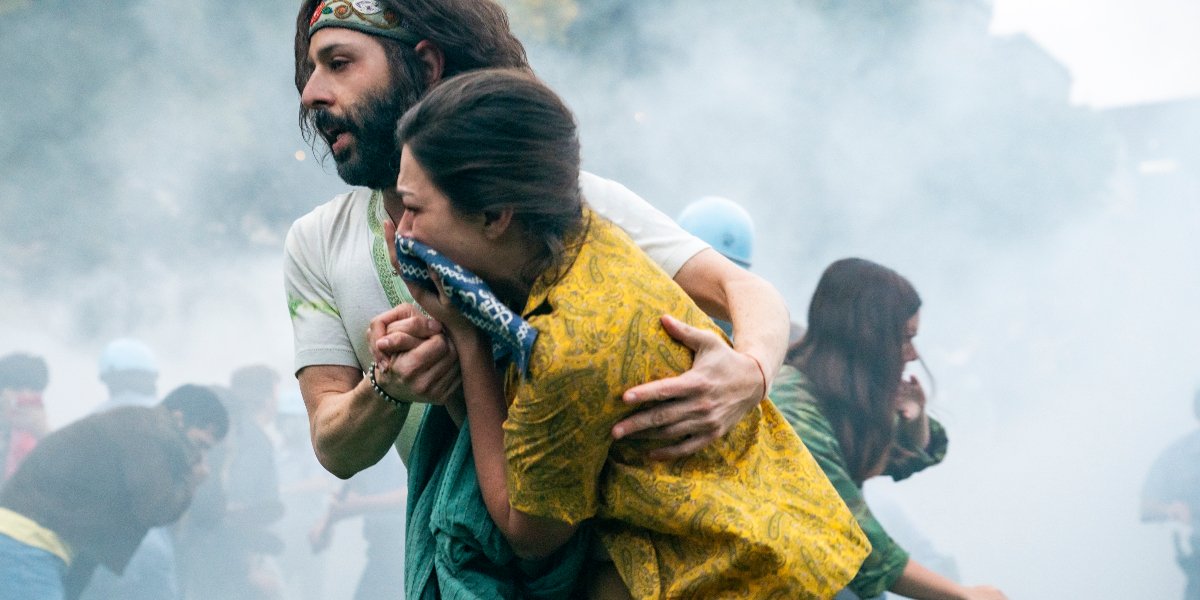
A Group Of Anti-War Protestors Were Charged In Connection To The 1968 Chicago Riots
America was in the middle of the divisive Vietnam War by the time the Democratic National Convention was announced to be held in Chicago in the summer of 1968. In addition to seeing the formal nomination of then-vice president and Democratic presidential candidate Hubert Humphrey and his running mate Edmund Muskie, millions of Americans witnessed large-scale protests that turned to violent, angry, and bloody clashes between anti-war protestors, including the group who would be known as the Chicago 8. These only escalated as the convention went on.
Following multiple days of protests-turned-riots, leaders of the various protest and student groups — Abbie Hoffman and Jerry Rubin of the Youth International Party (Yippies), Tom Hayden of the Students for a Democratic Society (SDS), Bobby Seale of the Black Panthers, David Dellinger and Rennie Davies of the National Mobilization Committee to End the War in Vietnam, John Froines and Lee Weiner — were all charged with inciting the riots and were put on one of the most highly publicized trials in modern American history, according to Britannica.
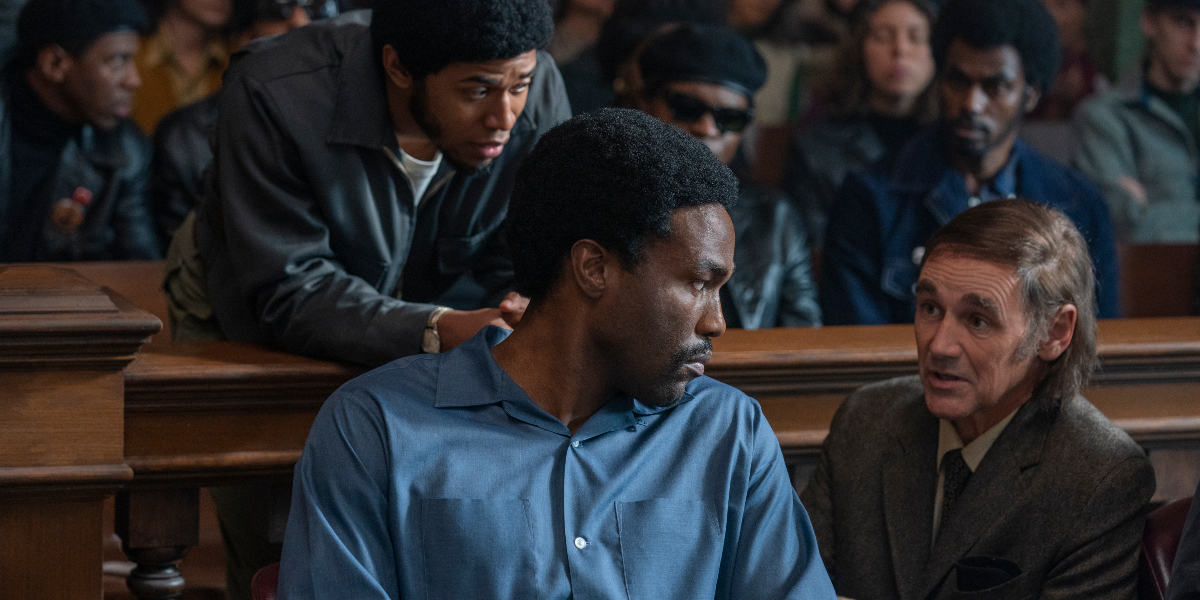
The Group Was Originally Called The Chicago 8 Before Bobby Seale Was Gagged And Removed From The Case
The trial against the Chicago 8, which began in September 1969, was anything but a normal trial, thanks in part to the anti-establishment nature of the defendants and their attorneys clashing with the law-and-order tendencies of the presiding judge Julius Hoffman. Not long into the 1969 trial surrounding the group's involvement in the previous year's riots, Bobby Seale, who helped found the Black Panthers a few years earlier, was bound and gagged by courtroom security at the demand of Judge Hoffman following a series of loud outbursts.
According to the Chicago Tribune, Bobby Seale was eventually charged with multiple counts of contempt of court and was sentenced to four years in prison. This temporarily removed him from the case for a later date. No new trial, however, was ever started in Seale's involvement in the matter and his prison sentence was later reversed. Seale's co-defendants would remain on the case and would then become known as the Chicago 7, and would collect more than 100 contempt of court charges as the proceedings carried on.
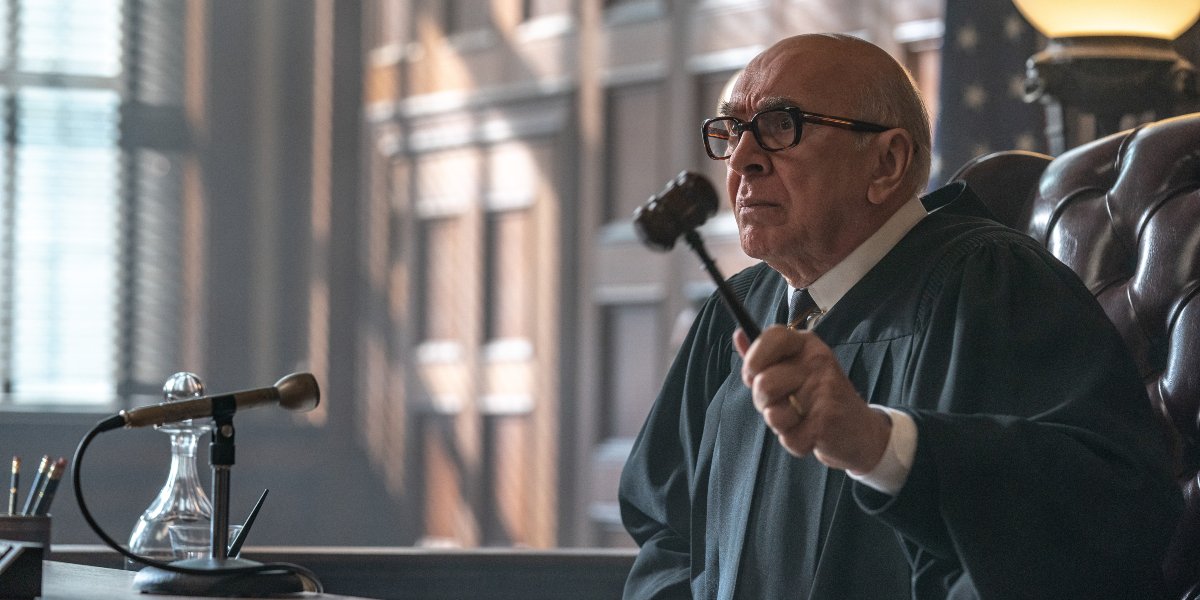
The Presiding Judge And The Defendants (And Their Attorneys) Had A Constant Back-And-Forth Throughout The Trial
Judge Julius Hoffman's run-ins with the protestors didn't stop when he sent Bobby Seale to prison in late 1969. If anything, Julius Hoffman's behavior only further incited the group now known as the Chicago 7. According to the PBS series Independent Lens, defendants Abbie Hoffman and Jerry Rubin once entered the courtroom dressed in judicial robes, and once ordered to remove the robes, Abbie Hoffman did so and revealed he was dressed as a Chicago police officer.
Your Daily Blend of Entertainment News
Tensions between the judge and defendants only intensified as the case went on, with Julis Hoffman and the Chicago 7 exchanging barbs that would often degrade into shouting matches between the two sides. The New York Times reported in February 1970 that Abbie Hoffman, who had no relation to Julius Hoffman, began called the judge "Julie" whenever addressing the court. At another point, the defendants entered a melee with federal marshals when Julius Hoffman ordered one of the defendants to be taken into custody.
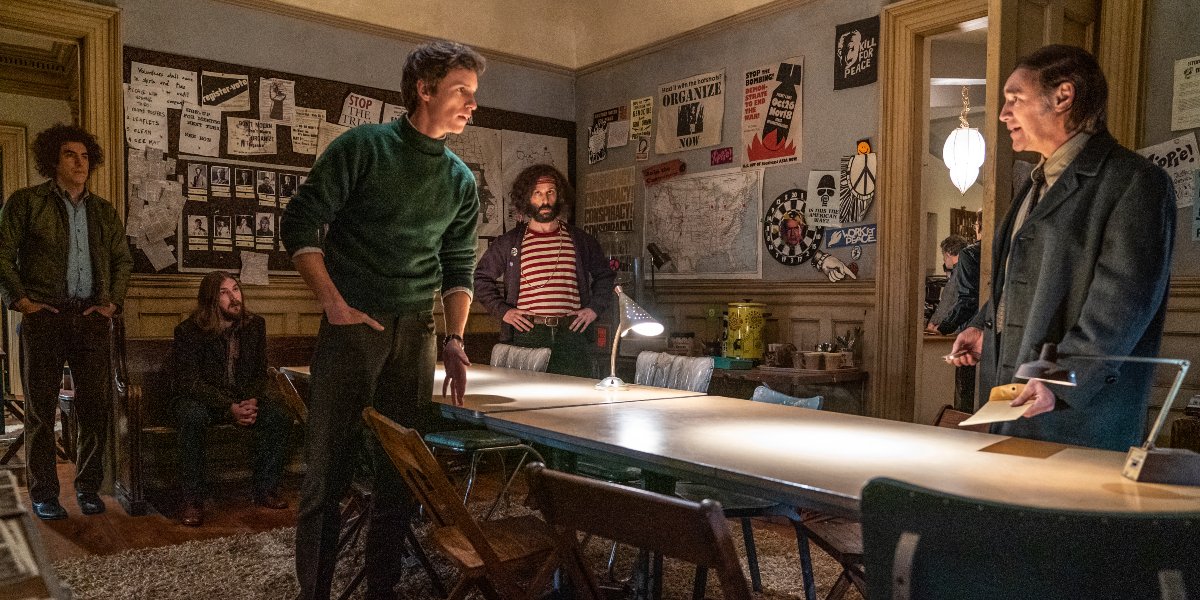
The Trial Became A Defining Moment In The American Counterculture And Spawned More Riots
Shortly after the trial began in late 1969, the more radical subset within the Students for a Democratic Society began to call themselves the Weathermen. The Weathermen took it upon themselves to bring the Vietnam War home with the Days of Rage protests, which was inspired by the Chicago 8 and their ongoing legal battles. According to WTTW Chicago, in early October 1969, a small group of student protesters, led by the Weathermen, marched south from the Lincoln Park neighborhood to the Chicago Loop armed with steel pipes, chains, bats, and slingshots, hellbent on destruction.
Although the group wasn't as large as organizers had hoped, the Days of Rage riots ended with multiple clashes with police which resulted in scores of injuries and hundreds of arrests. During that same time, other factions of SDS held more peaceful protests in regards to the Vietnam War and the Chicago 8 and distanced themselves from the Weathermen for their more aggressive tactics.
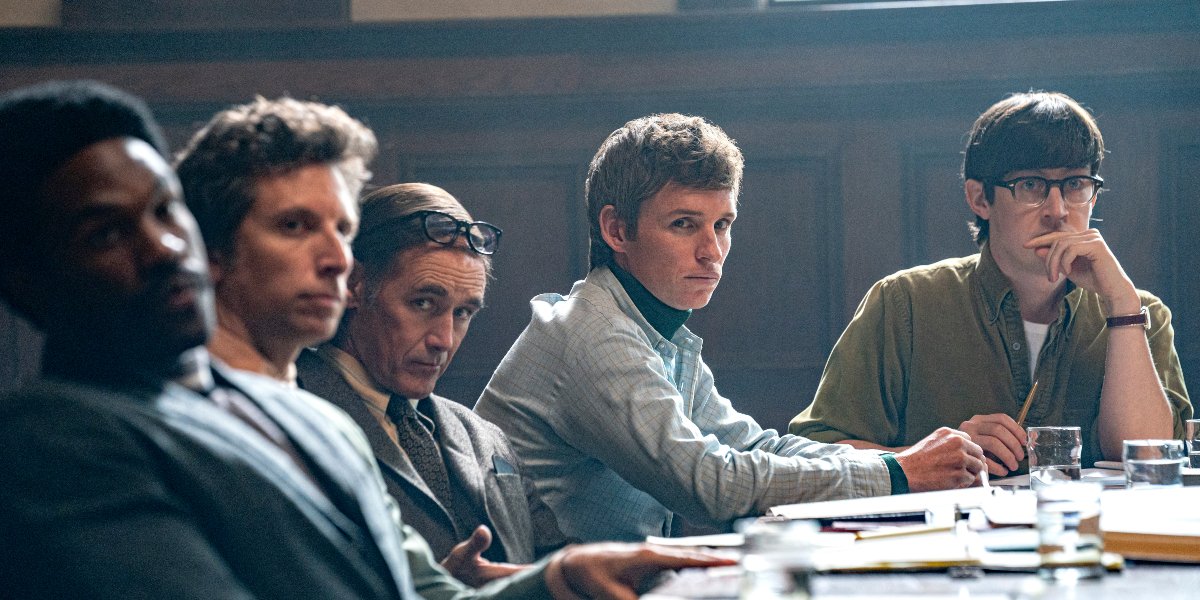
The Defendants Were Found Not Guilty On Conspiracy Charges But Were Sent To Jail Anyway
As the trial concluded, the jury acquitted John Froines and Lee Weiner of all charges, while the remaining five were found guilty of inciting a riot across state lines (five-year prison sentences) but not guilty of conspiring to do so. According to the Chicago Tribune, however, Judge Julius Hoffman sentenced all seven defendants and two of their defense attorneys to contempt of court charges and ordered all to be sent to prison.
All of the convictions would later be thrown out after an appeals court reversed the convictions in 1972 after judges decided that Judge Julius Hoffman acted out of line throughout the proceedings and also because the FBI had bugged the defense attorneys' offices.
This is just the beginning of the Chicago 7's story. Many more details concerning the 1968 protests, the court proceedings, and the legacy of its players will be presented in full in The Trial of the Chicago 7 when it premieres on Netflix on Friday, October 16.
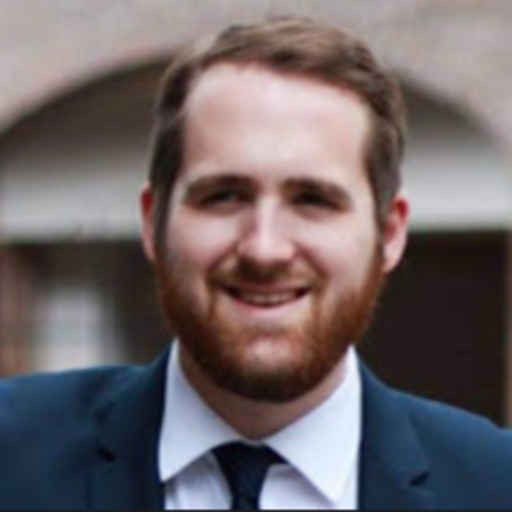
Philip grew up in Louisiana (not New Orleans) before moving to St. Louis after graduating from Louisiana State University-Shreveport. When he's not writing about movies or television, Philip can be found being chased by his three kids, telling his dogs to stop barking at the mailman, or chatting about professional wrestling to his wife. Writing gigs with school newspapers, multiple daily newspapers, and other varied job experiences led him to this point where he actually gets to write about movies, shows, wrestling, and documentaries (which is a huge win in his eyes). If the stars properly align, he will talk about For Love Of The Game being the best baseball movie of all time.
